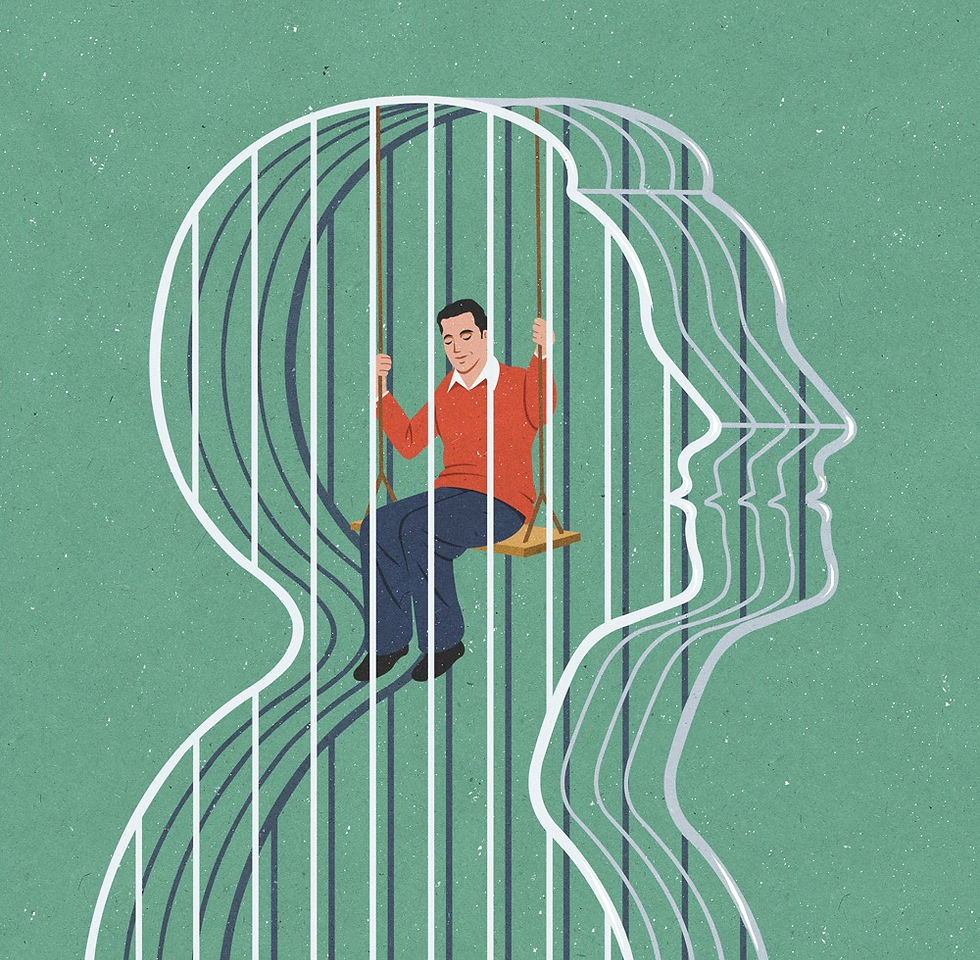“The Devil You Know” — How Perfectionism Harms Us
- nelsonmiked

- Dec 13, 2018
- 3 min read
Updated: Apr 29, 2025

“Ok. So, I’m perfectionistic. So what? Isn’t this a trait that, while annoying in some ways, ultimately just makes me more productive and more effective in other ways?”
Well. Let me start with my bias. When I use the word “perfectionism” I am never talking about something positive. In my view perfectionism is always a negative thing. So part of how I go about identifying perfectionism is by recognizing the negative affects of the behaviors, not by looking at the specific behaviors per se (like, being “pretty particular about things”). If you are particular about things then you are particular about things; however, if being particular is harming you or others then by my definition you are likely struggling with perfectionism.
In their book Reinventing Your Life: How to Break Free From Negative Life Patterns Young and Klosko observe: “The basic problem with Unrelenting Standards [Perfectionism] is that you lose touch with your natural self. You are so focused on order, achievement, or status that you do not attend to your basic physical, emotional, and social needs...Things like love, family, friendship, creativity, and fun—the things that make life worth living—take a back seat to your obsessive quest for perfection.”
Sure, perfectionism may drive you to a type of “success” but typically perfectionists do not stop to enjoy their successes. Once one thing is accomplished, perfectionists immediately shift their focus to the next thing they need to do perfectly. The effect is often to render the thing they just accomplished meaningless.
Perfectionists rarely feel content. The way perfectionists relentlessly pursue their standards makes it difficult to experience chances for positive feelings like love, peace, happiness, pride, or relaxation. Instead they often feel irritation, frustration, disappointment, and, of course, pressure.
In addition to these unnessary strains on body and mind perfectionists tend to strain their intimate relationships. Perfectionists expect others close to them to confirm to their unrealistic standards. They are prone to criticism and judgement (after all, they are just doing to others what they do to themselves!) And when they do spend time with their loved ones it is likely in a hurried, pressured way. They will not be able to give the ones they love the gift of quality time. They will find it very difficult to be present with them.

Why do perfectionists continue this course of self harm? Often it is the believe that one of the things they do will finally bring satisfaction and a release from the pressure. Perfectionists do not realize that it is the very way they approach everything that keeps contentment and peace tantalizingly just out of reach.
Young and Klosko explain: “This [false] sense of progress keeps you going. You imagine an end to the road, when you can finally relax and enjoy life. You fantasize about some future time when you will be released. But that state of peace that you hope to find at the end of your striving never comes. Even if it did, you would just find something else, some other relentless standard to meet. This is how your lifetrap reinforces itself. At your core you are not happy unless you are striving. It may not make you happy, but it is familiar. It is the devil you know.”
But if I give up my perfectionism won’t I stop trying? Won’t I stop achieving? Won’t I just sit on the couch and binge watch Netflix?



Comments